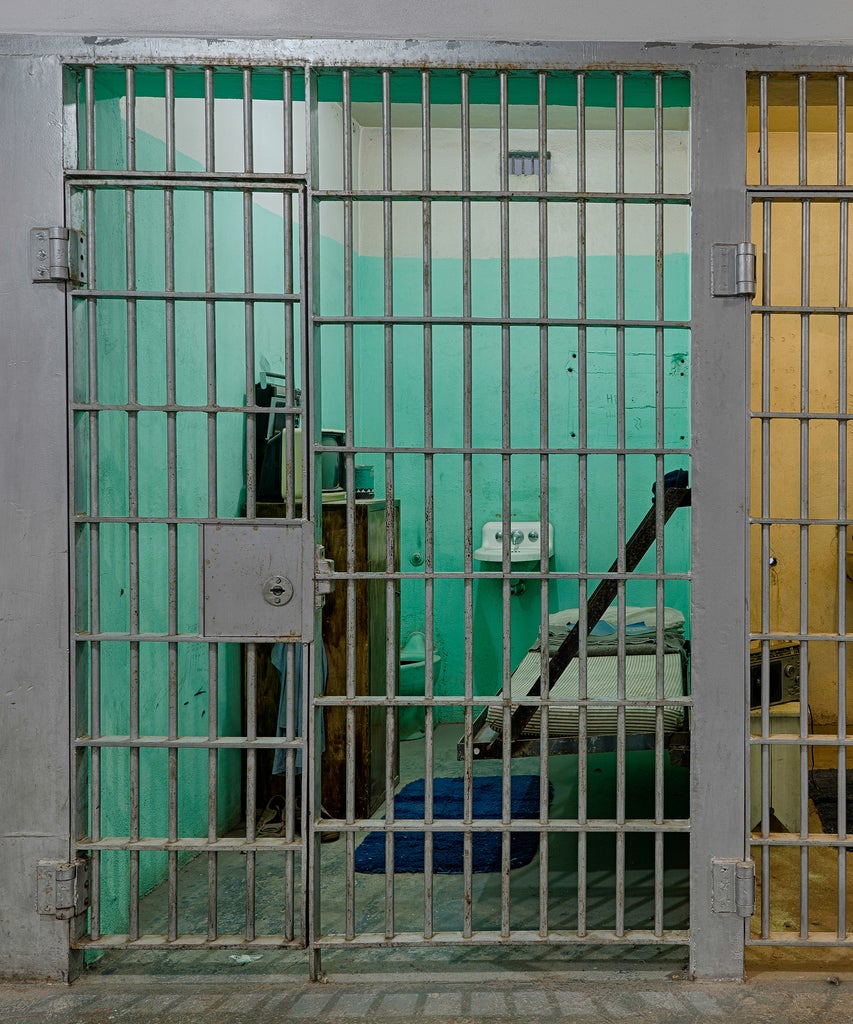

BOISE, IDAHO – JULY 31: Two cells on Death Row in the Old Idaho State Penitentiary on July 31, 2013 in Boise, Idaho; Shutterstock ID 154636199; Purchase Order: –
New coronavirus cases are blooming inside Texas prisons at an alarming rate. On Monday, the Texas Tribune reported that of the 1,700 of symptomatic inmates the Texas Department of Criminal Justice had tested for the highly contagious virus, more than 70 percent had tested positive — a staggeringly high number, particularly in light of the relatively low percentage of confirmed cases among those in the state’s general population who have been tested.
“People are scared to tell the officers that they’re sick because they say they’re not doing much of anything to actually help,” an inmate from Beto Prison in Texas said in a letter reported by the Tribune. “The sick people use the same showers as the healthy people which is why I choose to take a bird bath,” a prison phrase for washing out of a prison cell’s sink.
According to the TDCJ’s testing, the results account for 1% of the state’s total prison population. When compared to the 10% of Texas state-wide residents who have tested positive, this number is quite alarming. And incarcerated people are not the only ones in prisons suffering from the coronavirus pandemic either — as of April 29, four corrections officers and one chaplain had died, with more than 350 staff testing positive, according to a report from The Marshall Project.
Prisons have been hotbeds for coronavirus transmission across the United States, consistently seeing rates of infection higher than those among the non-incarcerated. The Marshall Project also reported reported that at least 14,513 incarcerated people had tested positive for the virus — a more than 50 percent increase from the week before.
For incarcerated individuals and prison system workers, close quarters and inadequate access to hygiene products has meant that prisons are effectively breeding grounds for a virus that may be able to linger on surfaces for up to three days. And despite a memo from U.S. Attorney General William Barr in April that ordered states to “immediately maximize” the release of vulnerable prisoners to home confinement, officials have, thus far, been slow to act.
In hardest-hit New York City, criminal justice reformers and advocates urged Governor Andrew Cuomo and Mayor Bill de Blasio to take preventative action in order to curb deaths in the crowded Rikers Island jail complex. As of May 2, there were 370 confirmed cases of coronavirus among a jail population of 3,828, the Legal Aid Society reported — an infection rate of nearly 10 percent. In Chicago’s Cook County Jail, one of the largest in the country, at least 238 inmates and 115 staff members were confirmed positive for the virus in April, and the jail acknowledged that a lack of access to test kits likely meant that the true number was much higher.
Despite TDCJ introducing policy changes during the pandemic — including a cancellation of inmate visitation, stricter unit cleanings, and two-week lockdowns for infected locations — the policies incited at a state-level are not necessarily trickling down. Prisons in Texas are still running without proper supplies, like masks and hand sanitizer. But the larger issue remains the lack of testing.
Michele Deitch, a prison conditions expert at the University of Texas law school, told the Tribune that in addition to contributing to undercounts, the shortage of tests also meant that the conditions in state jails were unlikely to improve anytime soon.
“Until they start doing mass testing, I don’t think they’re going to get a hold of the problem there,” Deitch said. “There are going to continue to be deaths, and it’s going to continue spreading to the communities both through staff and people who are released and people who are sent to community hospitals.”
Refinery29 has reached out to the Texas Department of Criminal Justice for comment. We will update this story when we know more.
Click HERE to read more.
You can publish this article on your website as long as you provide a link back to this page.

Be the first to comment